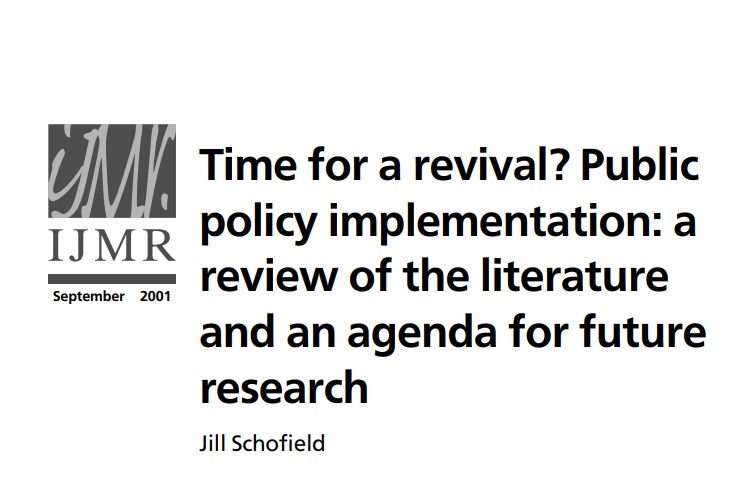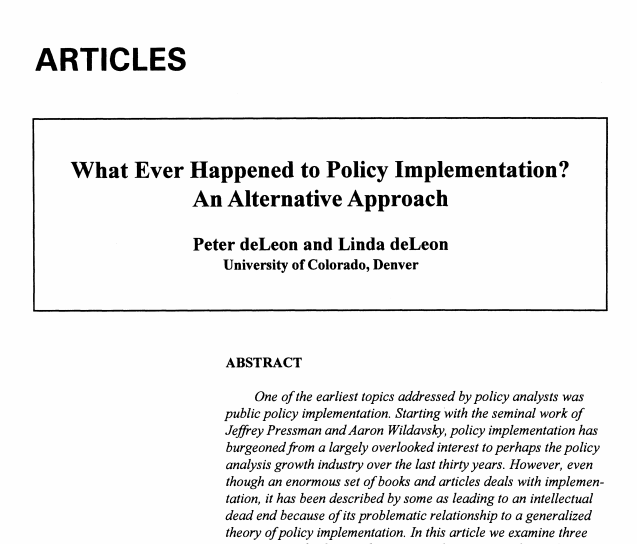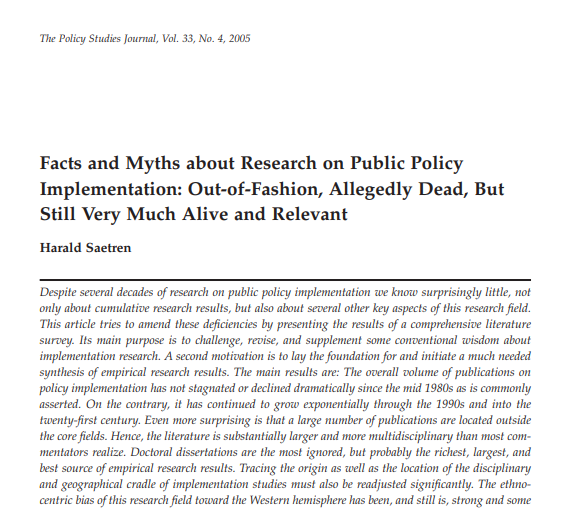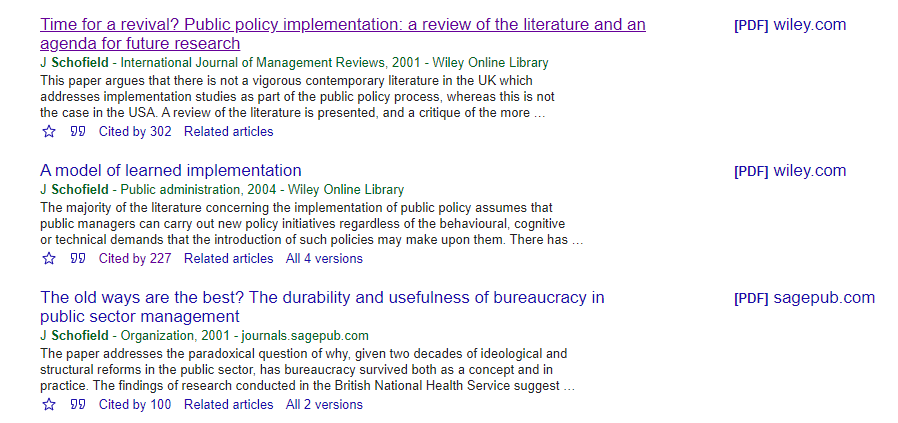I have written before both a thread AND a blog post on how I enter a new field.
http://www.raulpacheco.org/2018/01/mapping-a-new-field-of-scholarship/
This">https://www.raulpacheco.org/2018/01/m... thread will focus on how we (as supervising faculty) can help students navigate a maze of new literature. I am going to use several areas/fields I know well.
http://www.raulpacheco.org/2018/01/mapping-a-new-field-of-scholarship/
This">https://www.raulpacheco.org/2018/01/m... thread will focus on how we (as supervising faculty) can help students navigate a maze of new literature. I am going to use several areas/fields I know well.
One of my Masters& #39; students wants to focus on public policy implementation research.
This is a field I know relatively well, though I am not totally up on the literature (I& #39;m more of a comparative public policy person). I know some of the foundational authors and a few works.
This is a field I know relatively well, though I am not totally up on the literature (I& #39;m more of a comparative public policy person). I know some of the foundational authors and a few works.
Anybody who knows me knows that I& #39;m someone who eschews traditional "seminal works" approaches. I strongly believe we need to change the way in which we cite and include scholars in our syllabi, opening the field(s) to up-and-coming scholars and those traditionally at the margins
For example, in public policy implementation, Pressman and Wildavsky are well known, as are Sabatier and Mazmanian and Hill and Hupe.
BUT... so is Jill Schofield and so is Gemma Carey and so is Helen Dickinson.
So when I direct my students to implementation works, I always...
BUT... so is Jill Schofield and so is Gemma Carey and so is Helen Dickinson.
So when I direct my students to implementation works, I always...
... suggest that their citations include under-represented minorities, not only "traditional" scholars. A quick Google Scholar of Jill Schofield& #39;s work on policy implementation yields a treasure trov, among them: https://onlinelibrary.wiley.com/doi/pdf/10.1111/j.0033-3298.2004.00392.x
andhttps://onlinelibrary.wiley.com/doi/pdf/1... href=" https://onlinelibrary.wiley.com/doi/pdf/10.1111/1468-2370.00066?casa_token=vrzrSZts7tsAAAAA:qOFMnnoSVaYL1_50MDDWSDXWKnsowuK8TBya9yXKn1A35EAlfspL_6SxJ8sd54Afq0v-2Vw3rV8IKZtV">https://onlinelibrary.wiley.com/doi/pdf/1...
and
I view my role as supervisor as providing names and suggesting specific pieces that my student can review. I also view it as my role to direct them towards those scholars who may not come up quickly/often in searches (because, we all know how it goes, don& #39;t tell me you don& #39;t).
The second strategy I use as supervisor is to direct my students to published reviews, state-of-the-art pieces and "an agenda for future research" papers. Example (yes, it& #39;s Jill Scholfied& #39;s 2001 piece)
These pieces are not always clearly titled as "agenda for future research"
These pieces are not always clearly titled as "agenda for future research"
For example, the late Peter de Leon, alongside Linda De Leon, wrote another great piece on implementation theory.
Titles like "policy implementation is not dead" are also frequent in the literature, and usually refer to state-of-the-art literature reviews/summaries.
Titles like "policy implementation is not dead" are also frequent in the literature, and usually refer to state-of-the-art literature reviews/summaries.
For example see Saetren 2005 (great title).
Now, the problem is that if we keep mentioning the same (well-known, male) names and citing the same people, we will never change the field and get real diversity.
This is why citation diversification is a purposeful strategy.
Now, the problem is that if we keep mentioning the same (well-known, male) names and citing the same people, we will never change the field and get real diversity.
This is why citation diversification is a purposeful strategy.
Given the importance of Jill Schofield in the field of policy implementation, I seriously believe she& #39;s well under-cited.
The only way to change this phenomenon is to #CiteMoreWomen and #CiteMoreUnderrepresentedScholars - this is not to say you shouldn& #39;t say "traditional" ones
The only way to change this phenomenon is to #CiteMoreWomen and #CiteMoreUnderrepresentedScholars - this is not to say you shouldn& #39;t say "traditional" ones
There is an actual politics of citation, and it& #39;s on to us to change it and open the networks of citation to scholars at the margins and underrepresented.
http://www.raulpacheco.org/2020/02/on-the-responsibility-of-crafting-a-syllabus/
cc">https://www.raulpacheco.org/2020/02/o... @StephenBHeard
http://www.raulpacheco.org/2020/02/on-the-responsibility-of-crafting-a-syllabus/
cc">https://www.raulpacheco.org/2020/02/o... @StephenBHeard

 Read on Twitter
Read on Twitter





